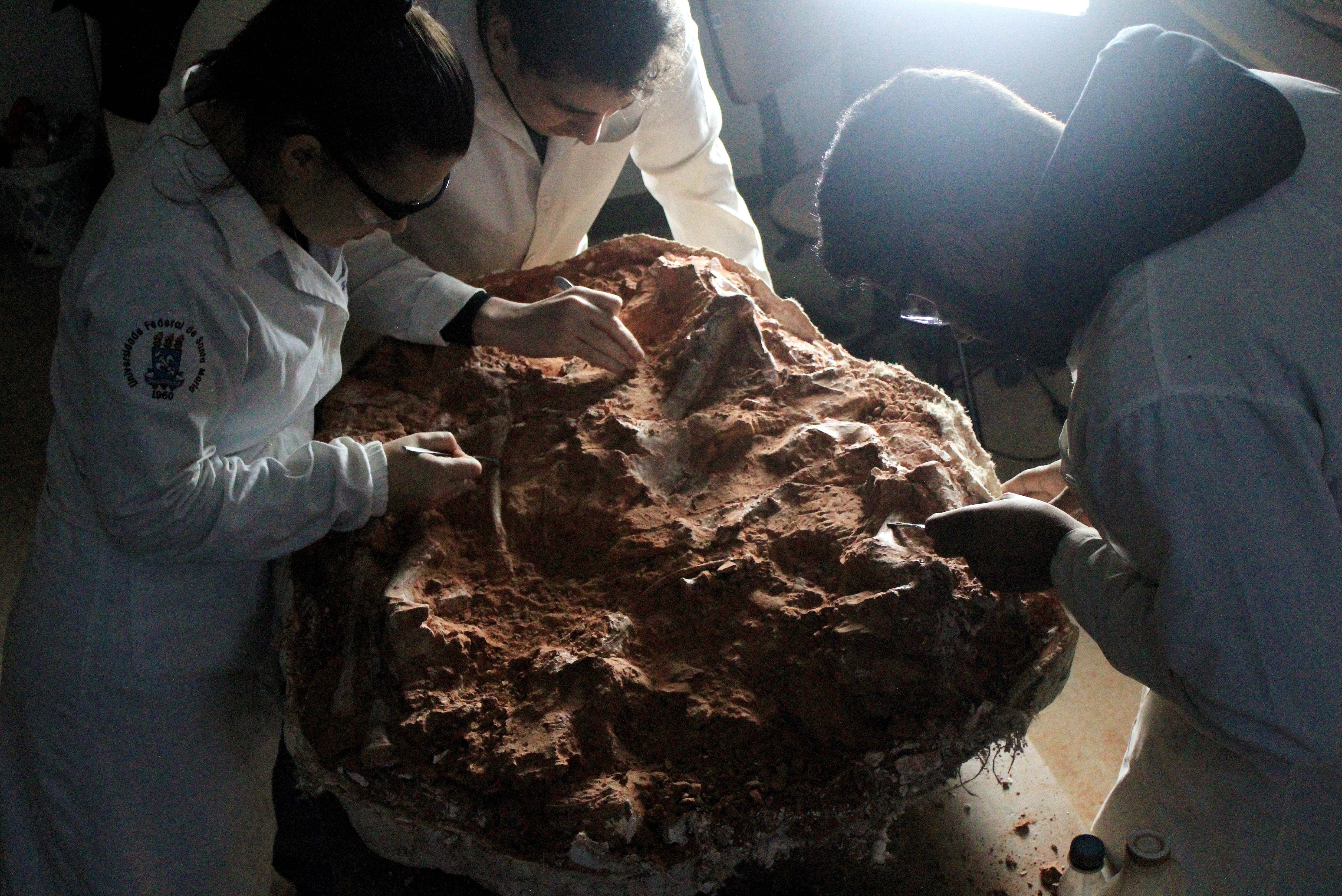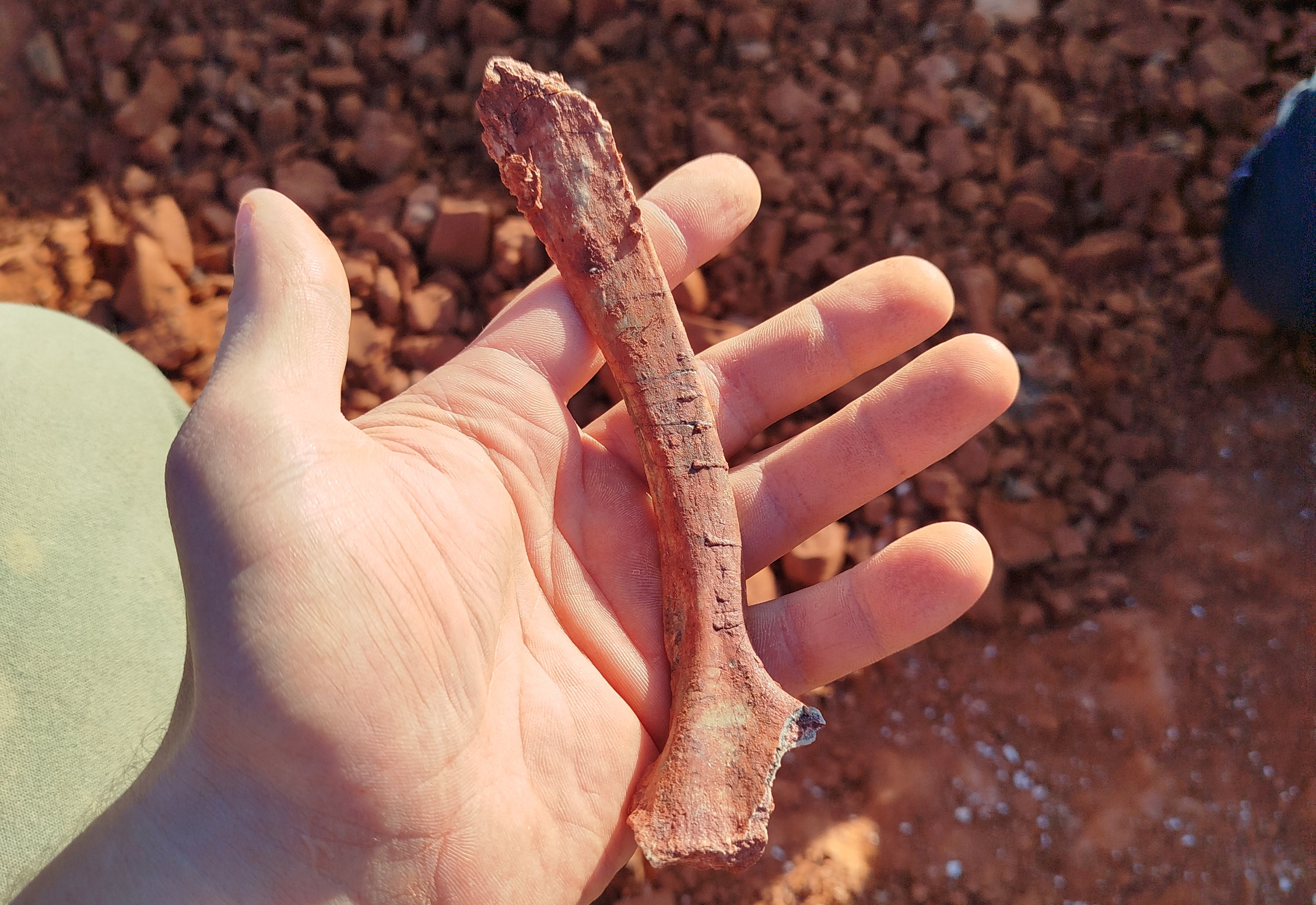Heavy rains in Brazil unearth what could be world’s oldest dinosaur fossil
Findings could reveal origin of all dinosaurs, scientists say
Your support helps us to tell the story
From reproductive rights to climate change to Big Tech, The Independent is on the ground when the story is developing. Whether it's investigating the financials of Elon Musk's pro-Trump PAC or producing our latest documentary, 'The A Word', which shines a light on the American women fighting for reproductive rights, we know how important it is to parse out the facts from the messaging.
At such a critical moment in US history, we need reporters on the ground. Your donation allows us to keep sending journalists to speak to both sides of the story.
The Independent is trusted by Americans across the entire political spectrum. And unlike many other quality news outlets, we choose not to lock Americans out of our reporting and analysis with paywalls. We believe quality journalism should be available to everyone, paid for by those who can afford it.
Your support makes all the difference.Torrential rains in Brazil have eroded parts of a fossil site, revealing what scientists think could be the world’s oldest known dinosaur skeletons.
The “almost fully preserved” dinosaur fossil, discovered next to a reservoir in Brazil’s southernmost state of Rio Grande do Sul, could be around 233 million years old, researchers say.
They suspect the fossil creature lived during the Triassic Period, when all of the Earth’s continents were a single landmass called Pangea, and dinosaurs had just emerged.
Researchers suspect the unearthed fossil belongs to a member of the Herrerasauridae family of carnivorous dinosaurs that grew to about 2.5m in length.
These two-legged dinosaurs are known to have wandered across vast sections of present-day Brazil and Argentina.

“It’s among the oldest in the world,” Rodrigo Müller from the Federal University of Santa Maria told local news agency Agência Brasil.
“Initially it seemed like just a few isolated bones, but as we exposed the material, we were able to see that we had an almost complete skeleton,” Dr Müller told the Associated Press.
Currently, the oldest dinosaur specimen conclusively known to humans is a collection of fossils from different species dated to about 231 million years ago.
There are also more disputed fossils that date back as far as 240 million years.
If the yet-to-be peer-reviewed findings, if found to be true, could shed more light on the origin of dinosaurs, scientists say.
The dinosaur age is known to have begun in the 50-million-year Triassic Period following the Permian extinction event when about 90 per cent of the planet’s species perished.

“It’s already important because of the role it’s likely to play in helping us understand the origin of the dinosaurs,” Dr Müller said.
However, the region where the fossil site is located in Southern Brazil is subject to increasingly devastating torrential rains each year.
In June, the state received three months of rain within just two weeks causing floods that killed nearly 200 people, according to Brazil’s civil defense.
Researchers are in a race against time to unearth remaining fossils in the region before further rains destroy them as they found that a “leg bone and a pelvis bone” were already destroyed by the floods.
Join our commenting forum
Join thought-provoking conversations, follow other Independent readers and see their replies
Comments